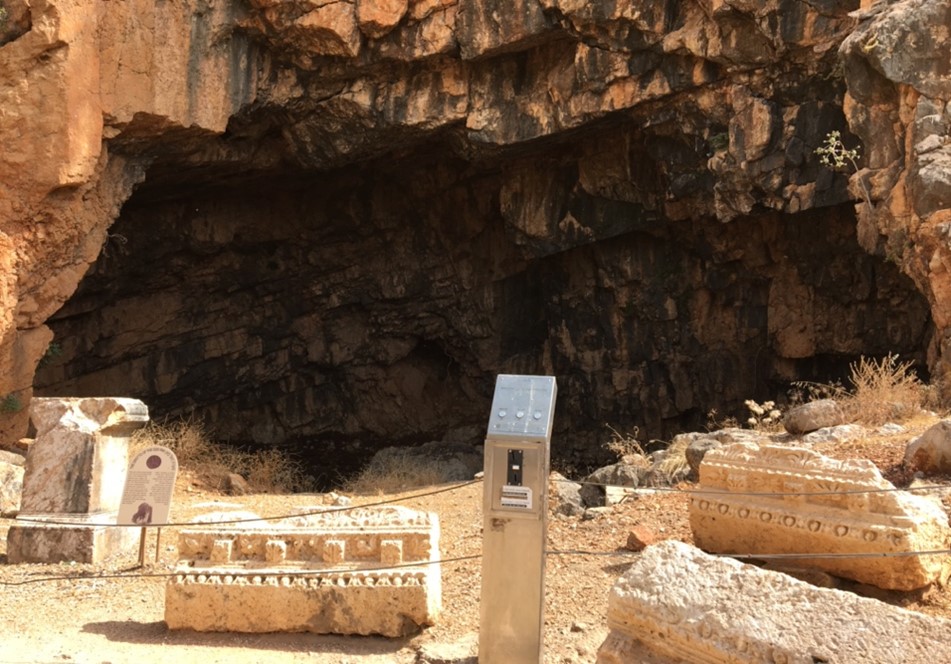By: Michelle Johnson, MDiv., Ph.D. | February 11, 2024
It wasn’t too long ago we finally finished putting the Christmas decorations away at our house. The process caused me to reminisce about the time we had enjoyed with family and celebrations with our church family both this year and in years past. As each year passes, I am increasingly burdened by the chasm between the secular “Christmas” celebrated by society and the true meaning of Christmas–the incarnation of Jesus Christ.
I ponder the great effort put forth by retail companies (think gifts and décor) and the entertainment industry (movies, concerts, and special events in the name of the “special season”) and can’t help but marvel at the effort to capitalize on the season all while wholly rejecting the reason behind it.
This season, I was reminded of a very important question, arguably the most important question each one of us must answer. All three of the synoptic gospels (Matthew, Mark, and Luke) record Jesus asking his disciples “Who do you say that I am?” Considering the confusion at Christmas and what event it truly marks, I would challenge you to consider your own answer to this question. Who do you say Jesus is?
Jesus’ Two Questions
Jesus and his disciples made their way to an area known as Caesarea Philippi, located north of the Sea of Galilee and near the base of Mount Hermon. It is a beautiful, lush, park like area that has some of the beginning waters of the Jordan River running through it. Like many places during the time, the name was chosen to honor the current Caesarea and the local ruler, Philip the son of Herod the Great.[1]
In addition to the beautiful nature there are ruins of pagan Roman worship. Today one can walk along the side of a hill into which is carved numerous niches that might have held statues of Roman gods and goddesses. There are areas that were once foundations for temples to both one of the Caesars and other gods. There is a particularly looming grotto dedicated to the god Pan (see attached picture). According to a local guide this grotto once involved the sacrifice of infants to the god Pan. This was the physical environment that served as a backdrop to Jesus’ two questions.
This is Matthew’s account of the conversation:
When Jesus came to the region of Caesarea Philippi, He asked His disciples, “Who do people say that the Son of Man is?” And they said, “Some say John the Baptist; others, Elijah; still others, Jeremiah or one of the prophets.” “But you,” He asked them, “who do you say that I am?” Simon Peter answers, “You are the Messiah, the Son of the Living God!” And Jesus responded, “Simon son of Jonah, you are blessed because flesh and blood did not reveal this to you, but My Father in heaven…” (Matt 16:13-17 HCSB, see also Mark 8:27-29 and Luke 9:18-20)
The Question of the Populace’s Belief in Jesus’s Identity
Jesus begins by asking them what the general population said about his identity. In general, the response was, somebody good, important, and/or wise. John the Baptist or a prophet, like those through whom God spoke in the Old Testament. Obviously, someone who knew the things of God and seemed to live in his favor. How would you answer Jesus’ first question today? I would suggest the answers would be somewhat similar. While not citing specifically Old Testament prophets, many call him a prophet. Others consider him a good, moral teacher.
The Question of the Disciples’ Belief in Jesus’s Identity
Jesus makes his second personal. He specifically asks the disciples who they say he is. We are wise to feel the same question pointed directly at us. Who do I (insert your own name) say Jesus is? The disciples couldn’t hide behind the prevailing popular answer. While it is impossible to detect whether there were any pauses in the conversation through the written version, Peter seems to answer without hesitation– “You are the Messiah, the Son of the Living God!” How would you answer that question? Would you hesitate and need to think about your answer?
How the Bible Answers the Questions
Jesus tells Peter he is correct and knows the answer because God revealed it to him. The disciples had heard Jesus’ teaching and witnessed the miracles he performed while following him in his ministry.
The Bible is replete with passages that tell us about the identity of Jesus, God’s Son, sent as our Savior to redeem us from our sin, sin that entered the world through Adam and Eve in the early pages of Genesis. The length of this article allows space to note just a few of the places we are told about Jesus’ identity.
The Testimony of Jesus
Jesus himself tells us He is the Son of God. In the verses discussed above, Jesus tells Peter he is correct when he identifies Jesus as the Messiah, the Son of the Living God. In his High Priestly prayer, found in John 17, Jesus identifies himself as God’s son (John 17:1) and repeatedly calls God his father (17:1; 17:5; 17:11 etc.). Jesus makes claim to his divinity in the account of the healing of the paralytic. (Mark 2:1-12) Friends had lowered the lame man through the roof of a house to gain access to Jesus, believing he could heal him. Jesus begins by telling the man his sins are forgiven (2:5) and then ultimately provides physical healing (2:11b). It is the claim to have the authority to forgive sins that infuriates the religious leaders who acknowledge only God can forgive sins.
The Testimony of John the Baptist
John the Baptist, at the baptism of Jesus, testified, “…He is the Son of God.” (John 1:34). Before John the Baptist was even born, he responded to Jesus’ identity from within his mother’s womb. Luke records Jesus’ mother Mary’s visit to her cousin Elizabeth, who was John’s mother. Both women were pregnant at the time and upon Mary’s arrival, John, within his mother’s womb, “leaped” within Elizabeth when she heard Mary’s voice. (Luke 2:41) Elizabeth told Mary of John’s reaction, asked how it was possible the “mother of my Lord” would visit her (Luke 2:43), and told her all that the Lord had told Mary would be fulfilled. Earlier in chapter 2, Luke recorded the angel’s announcement to Mary that she would become pregnant and have a son. This son “will be called the Son of God.” (Luke 2:35b)
The Testimony of God the Father
God himself specifically identified Jesus as his Son at both his baptism and transfiguration. At his baptism, Mark records that when Jesus came up out of the water, a voice from heaven said, “You are my beloved Son; I take delight in You!” (Mark 1:10-11)
Matthew documents the transfiguration of Jesus in chapter 17. While gathered high on a mountain with Peter, James and John, Jesus was transformed in front of them. Moses and Elijah also appeared. “While he was still speaking suddenly a bright cloud covered them, and a voice from the cloud said: This is My beloved Son. I take delight in Him. Listen to Him!” (Matt 17: 1-5)
Conclusion
While Christmas, and all its trappings that deviate so far from the whole event at the root of the holiday, is in the review mirror of life for another year, Jesus’ question is still in front of us. Who do you say he is? Peter and so much of scripture provide the right answer–Jesus is the Messiah, the Son of the Living God. I will argue there is then a follow-up question of equal importance–what are you going to do with that answer?
Are you going to respond to his invitation to repent and follow him? Will you accept the fact that he has stood in your place, taking the just wrath of God as penalty for your sin on your behalf? Will you submit to him and enjoy forever a right relationship with the one and only true God? It is my prayer that you will. If you have questions about becoming a follower of Jesus, please go to Bellator Christi’s main menu and click on the “How to Become a Christian” tab.
Notes
[1] Chad Brand, Charles Draper, and Archie England, eds., Holman Illustrated Bible Dictionary (Nashville, TN.: Holman Bible Publishers, 2003), 248.
About the Author
Michelle Johnson, M.Div., Ph.D.: Executive Vice President, Managing Editor of Bellator Christi Ministries, Publisher, and Contributor

Michelle Johnson earned a Ph.D. in Theology and Apologetics at Liberty University. She also earned her M.A. in Theological Studies and her M.Div. in Professional Ministries at Liberty University. Michelle graduated from the University of Minnesota with her undergraduate degrees. She and her husband Steve live in Mankato, Minnesota. Michelle and Steve attend Wooddale Church in Eden Prairie where Michelle serves on the Global Partner Care Team. In addition to her love of theology and apologetics, Michelle also has a passion for historical studies, particularly the theology of the Patristics. When she is not spending time reading or writing, Michelle can often be found dreaming of her next travel adventure or enjoying a great cup of coffee. Michelle Johnson serves as the Executive Vice-President and Managing Editor of Bellator Christi Ministries.
If you enjoyed this article, check out the following work by this author: https://bellatorchristi.com/2022/02/27/why-did-paul-persecute-the-christians/
(c) 2024. BellatorChristi.com.





